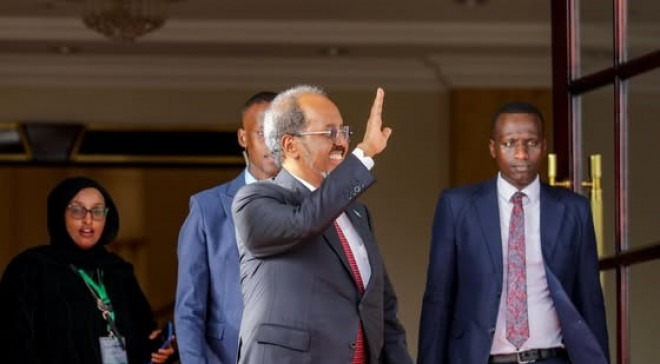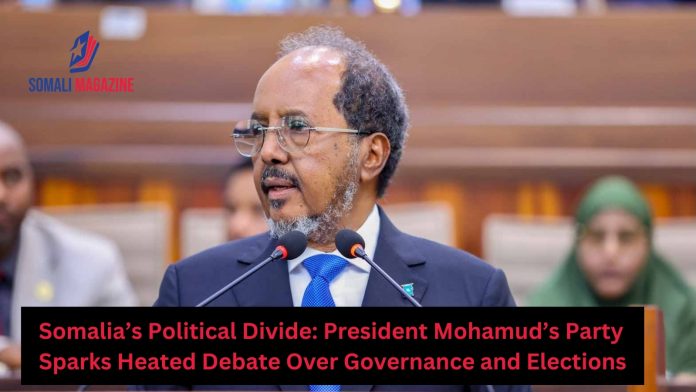Facebook Twitter (X) Instagram Somali Magazine - People's Magazine
Somali President Hassan Sheikh Mohamud’s newly expanded political alliance, the Justice and Unity Party (JSP), has ignited a heated debate across the country, with critics arguing that its formation threatens to deepen existing political divisions. The party, initially Mohamud’s personal political platform, has been restructured to include representatives from Galmudug, Hirshabelle, and Southwest states, a move widely seen as an effort to consolidate regional backing ahead of Somalia’s transition to universal suffrage.
While supporters of the JSP hail it as a necessary step toward strengthening governance and ensuring political stability, opposition figures warn that the party’s expansion is an attempt to sideline rival factions and centralize power. The controversy has been further fueled by unresolved negotiations over power-sharing, particularly with Southwest State, whose leader Abdiasis Laftagaren has resisted joining the alliance without securing a more prominent role in its leadership hierarchy.
The political maneuvering surrounding the JSP comes at a critical time for Somalia, as the country prepares for its first direct elections in decades. Mohamud has been a vocal advocate for transitioning away from the traditional clan-based 4.5 power-sharing system, arguing that universal suffrage is essential for democratic progress. However, regional administrations in Jubaland and Puntland remain opposed to the shift, citing concerns over electoral fairness and security risks.

Analysts warn that if Southwest State refuses to join the JSP, Mohamud’s agenda could lose critical momentum. The coalition would then represent fewer than one-quarter of Somalia’s national clan power structure and control only two of the five federal member states, raising questions about its legitimacy and ability to drive electoral reforms.
The debate over the JSP’s formation has also reignited discussions about Somalia’s broader political landscape, with opposition leaders accusing Mohamud of using state resources to advance his party’s interests. Some lawmakers have called for greater transparency in the electoral process, arguing that the government must ensure fair competition rather than consolidating power under a single political entity.
As negotiations continue, the fate of the JSP remains uncertain. The coming weeks will be crucial in determining whether Mohamud can secure the backing needed to push forward his electoral agenda or whether resistance from regional leaders will stall his efforts. The political divide surrounding the party underscores the challenges Somalia faces in balancing governance reforms with the realities of its complex federal system.

